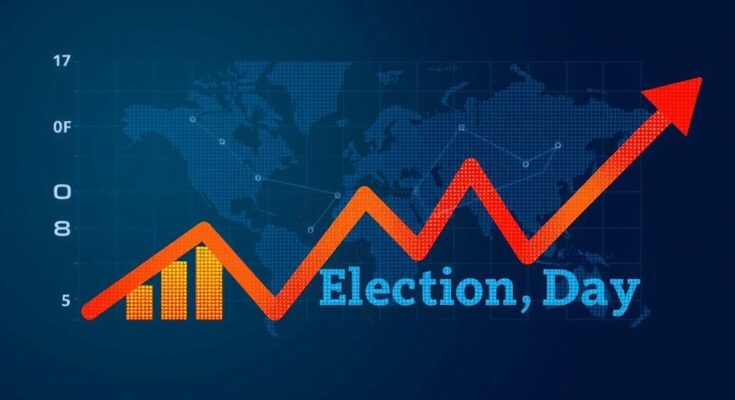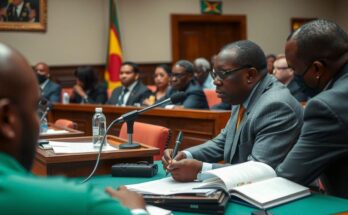The American economy shows resilience with a reported GDP growth of 2.8 percent in the third quarter and indications that inflation is subsiding. Despite these positive trends, many voters perceive the economy negatively, suggesting a potential impact on the electoral outcomes. Polls indicate economic issues dominate voter concerns, with Donald Trump maintaining an edge over Kamala Harris in economic trust, although the differential is closing. Trump’s focus on immigration over economic matters may affect his campaign’s effectiveness.
As Election Day approaches, economic indicators suggest a resilient American economy, with recent government reports revealing a 2.8 percent annual growth rate in gross domestic product (GDP) for the third quarter. Consumer spending is reportedly steady, and inflation appears to be moderating, signaling a recovery from the pandemic’s impacts. Nevertheless, voter sentiment reflects a mix of optimism and dissatisfaction, as a significant majority still rate the economy as either fair or poor, indicating a persistent discontent that may influence the presidential race. According to surveys conducted by The Times, the economy remains the foremost issue for voters, influencing their perceptions of candidates. Notably, in these polls, Donald Trump has maintained a lead over Kamala Harris regarding economic trust, although the gap has narrowed from thirteen points to six in the last month. Michael Gold, who covers Trump’s campaign, noted, “When Trump taps into voters’ concerns over the economy, it can be very effective.” He asserts that many see the economic situation as a reflection of the current administration’s performance, implying that a focused economic message could benefit Trump. However, Trump’s tendency to shift his rhetoric towards immigration—a key issue in his past successes—poses challenges. Despite his advisers’ recommendations to emphasize economic talking points, he has opted to prioritize immigration in several key speeches. Entertaining updates from the political landscape include the Supreme Court’s decision regarding Virginia’s voter rolls and the varied strategies employed by both Democrats and Republicans in battleground states. Furthermore, Arnold Schwarzenegger’s endorsement of Harris adds an additional layer of complexity to the unfolding election dynamics. As the election nears, the intricate interplay between economic performance, voter perceptions, and political messaging will undoubtedly play a pivotal role in determining the outcome. By staying attuned to these factors, stakeholders can better gauge how the electorate responds to these economic conditions in relation to their voting preferences.
The article addresses the current state of the United States economy in light of the upcoming election, highlighting recent economic growth alongside voter sentiment about economic issues. It reflects on the differences in how Donald Trump and Kamala Harris are perceived by voters in terms of economic policy and trust. The focus on the economy is integral as it remains the top concern for voters according to polling data. This context underscores the strategic importance for candidates to address economic issues effectively to appeal to the electorate.
In conclusion, as the American economy shows signs of recovery with solid growth metrics and cooling inflation, voter perceptions remain complex and divided. The economy is a crucial electoral issue that may significantly influence the upcoming presidential election. Candidates are urged to address economic concerns directly to resonate with the electorate, especially amidst persistent dissatisfaction with current economic conditions. As Election Day draws near, the effectiveness of their messaging could determine voter turnout and preferences.
Original Source: www.nytimes.com




